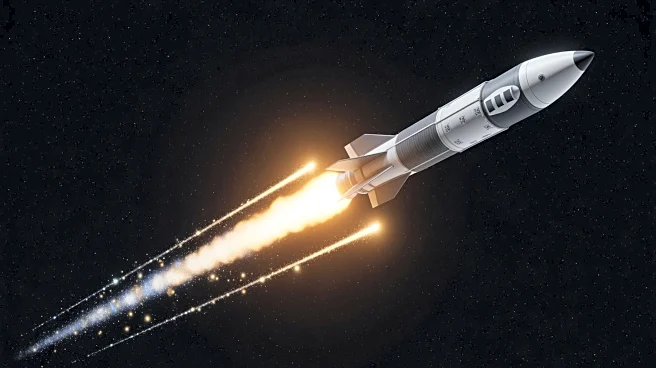What's Happening?
SpaceX has successfully launched a Falcon 9 rocket from Vandenberg Space Force Base, marking its 135th Falcon 9 launch of 2025. This launch breaks the company's previous record for orbital launches set
in 2024. The mission, known as Starlink 11-12, added 28 broadband satellites to SpaceX's growing constellation, which now includes over 8,700 satellites in low Earth orbit. The Falcon 9 first stage booster, identified as B1081, completed its 19th mission, having previously supported various NASA missions. The booster achieved an autonomous landing on the drone ship 'Of Course I Still Love You', marking the 160th landing on this vessel and the 523rd booster landing overall.
Why It's Important?
This achievement underscores SpaceX's growing dominance in the space industry, particularly in satellite deployment and reusable rocket technology. The expansion of the Starlink constellation enhances global internet coverage, potentially benefiting remote and underserved areas. The successful landing of the Falcon 9 booster further demonstrates SpaceX's commitment to cost-effective space travel through reusability. This milestone may influence other space agencies and private companies to adopt similar technologies, potentially accelerating advancements in space exploration and satellite communications.
What's Next?
SpaceX is likely to continue its aggressive launch schedule, further expanding the Starlink network and maintaining its leadership in the commercial space sector. The company may face increased competition as other entities seek to develop similar satellite networks. Regulatory challenges could arise as the number of satellites in orbit grows, necessitating international cooperation to manage space traffic and debris. SpaceX's continued success may also drive further investment in space technologies and infrastructure.
Beyond the Headlines
The rapid expansion of satellite networks raises questions about space sustainability and the long-term impact on orbital environments. Ethical considerations regarding the monopolization of space-based internet services and the potential for increased surveillance capabilities are also pertinent. As SpaceX continues to innovate, the cultural perception of space travel and exploration may shift, inspiring new generations to pursue careers in STEM fields.









